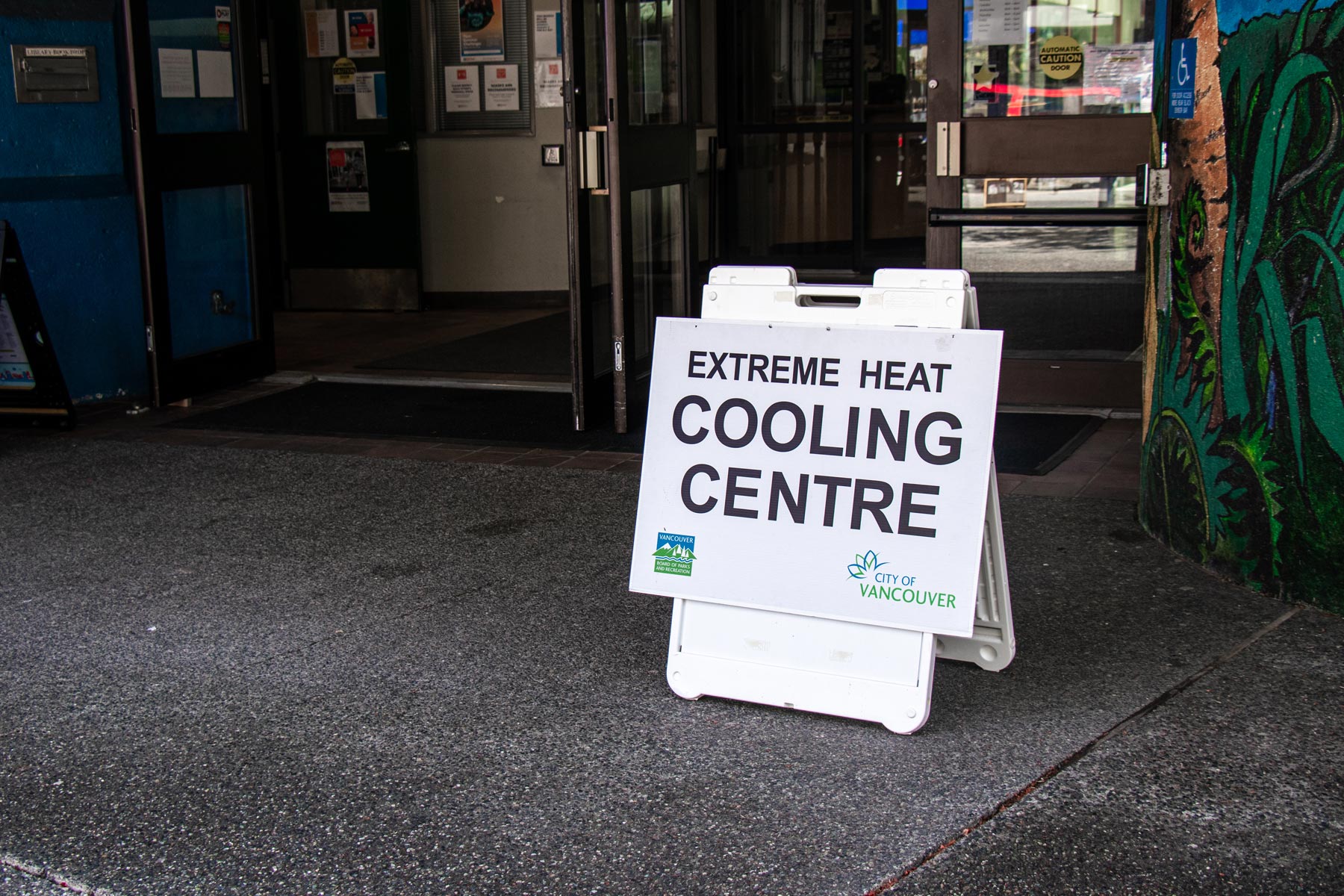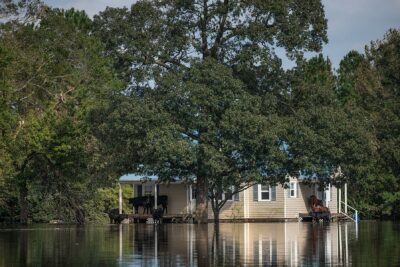We often read about what will happen if we don’t reduce our climate impact, but the truth is people are experiencing the devastating consequences of climate breakdown right now. Here we look at five parts of the world already affected, what this means for the people who live there, and how we should act in solidarity with them.
Famine in Madagascar
Madagascar is one of the poorest countries in the world, with more than 90 per cent of its citizens in the south of the country living below the poverty line. This means there is little resilience within the community when things go wrong, such as prolonged drought, a global pandemic, or crop failure. In August 2021, the United Nations warned that Madagascar was on the brink of the world’s first climate change-induced famine as tens of thousands of people experienced “catastrophic” levels of hunger and food insecurity, following four years without rain. In fact, researchers have since found that the drivers of this humanitarian crisis are more complex. The existing conditions of poverty, poor infrastructure, and over-reliance on agriculture means that even a slight shift in the climate is “absolutely catastrophic” for Madagascans.
Deadly Floods in Brazil
Brazil has experienced four major floods in just five months. Together, they have destroyed homes and infrastructure, and killed hundreds of people. In the most recent event, in May 2021, landslides destroyed hillside urban neighborhoods in the state of Pernambuco, driving 765 people from their homes and leading to the deaths of 35 people. People in Bahia state, São Paulo, and Rio de Janeiro have also experienced fatal rainfall-related disasters in recent weeks. These disasters occurred when unusually intense rain followed a severe and prolonged drought. Scientific debate continues as to whether this was conclusively connected to climate breakdown, but we do know that extreme weather events such as these will only worsen as our climate changes.
Heat Waves in North America
Because of the changing climate, deadly heat waves can affect almost any country, may not fall in the height of summer, and don’t need to last long to be a severe threat to people. In July 2021, almost 200 people died in Oregon and Washington state, while hundreds more died in Canada. And in May 2022, three women died after temperatures rose in Chicago. “Hotter and more dangerous heat waves are coming earlier,” warned Eric Klinenberg, a New York University sociologist. “And we are getting older, and more people are living alone. It’s a formula for disaster.”
It’s not just North America, of course. In 2019, a heat wave across Europe killed almost 1500 people in France.

Prolonged Heat in India and Pakistan
Hundreds of millions of people across India and Pakistan have been exposed to a serious and prolonged heat wave which has killed dozens of people, according to official records, though the number of victims is thought to be very much higher. The peak of the heat arrived much sooner than is usual and lasted longer, and in places was hotter than ever before, while also affecting a much wider region than is normal. This combination is what made this heat wave so dangerous.
Researchers estimate that climate change made this deadly heat wave 30 times more likely and warn that such events will become more frequent as the planet heats up. While short sharp heat waves can be deadly, the effects of prolonged extreme heat are much harder to mitigate.
Food Insecurity and Sickness in Pacific Island Nations
There are 15 independent Pacific Island countries and areas, and they are seeing firsthand the loss of their lands to the rising ocean. In Tuvalu, which is home to 11,000 people, it is clear to residents that the sea is encroaching on the land. Two of Tuvalu’s nine islands are already on the verge of being lost to the water, and since much of the land is just three meters above sea level, there are fears of mass displacement of people in the coming years.
Rising sea water is already having a serious impact on food security. It has contaminated underground water supplies, making inhabitants totally reliant on rainwater, and yet droughts are occurring with alarming frequency. The salty soil has made it impossible to grow staple crops like taro and cassava, and in any case, there is not enough rain water to irrigate them. Most food now has to be imported.
At the same time, toxins from the bleached sea corals poison ten people in Tuvalu each week, and climate-related illnesses are already on the rise.
Our Choices Matter
When we fly long distances for a holiday, when we drive instead of taking public transport, and when we eat meat when we could choose a plant-based meal, we should know that these decisions have consequences.
We may not see it, and we may be privileged enough not to have to think about it yet but people around the world are already losing their homes, traditions, livelihoods, and lives.
We cannot stop climate change in its tracks, but we can make sure the impacts are reduced. We can make different choices to give hope to people who are already affected, but also to protect ourselves, our families and our communities. Because there is no doubt that such impacts will affect us all one day unless we change.
Five Things We Can Do Right Now To Help The Climate
Some of the changes that we as individuals can make have a truly significant impact. They include:
- Eating plant-based. The farming of animals emits more greenhouse gasses than the fuel emissions from the entire global transport sector combined, which is why changing our diet has such a profound impact. Almost every product that comes from an animal—including meat, eggs, milk, and cheese—has a far bigger climate impact than every product that comes from a plant. So, switching beef for beans, cows’ milk for soy, and scrambled eggs for scrambled tofu can slash our own carbon footprints. If you’re ready to try vegan for one month, sign up for free and let us support and guide you.
- Reconsidering how we travel. Do we fly when we could conduct work meetings online? Do we book long haul holidays when we could have an incredible vacation closer to home? Do we drive to the shops daily when we could either walk or cycle, or do one large shop per week? What journeys could we change to cut down our consumption of fossil fuels?
- Reducing our energy requirements at home. Turning off lights and appliances when not in use, turning down the heating by one degree, ensuring our homes are well insulated, and drying our laundry outside instead of inside a dryer, if done consistently and together, can make a significant difference.
- Buying less stuff. Look around you. Most of us live with a lot of stuff. All of it has a carbon footprint, and most of it will end up in landfill one day, or be burned as waste, only to release toxins into the environment. Instead, can we buy second-hand, preloved items? Do we need to keep upgrading our technology and wardrobes? Can we learn that happiness and contentment do not come from owning, but from peace of mind and being?
- Lobbying decision-makers. Our individual actions are important, but when governments and corporations are forced to make changes, the positive benefits magnify and accelerate. But such institutions won’t change unless they are pressed to do so. So, be a (polite) thorn in their side. Write to your political representatives at national and local level to push for meaningful action. Sign petitions to corporations to help drive change. Why not start here, with the Plant Based Treaty? We can also be mindful of who we vote for, and where we spend our money, as these decisions have a huge impact.
Climate Composure
It is difficult to express the urgency of the global situation without creating a sense of anxiety, and that is not at all what we intend. But, whether we are calm or anxious, level-headed or burying our heads in the sand, we are still in the same situation. To protect lives—and our beautiful planet—we absolutely must act.



